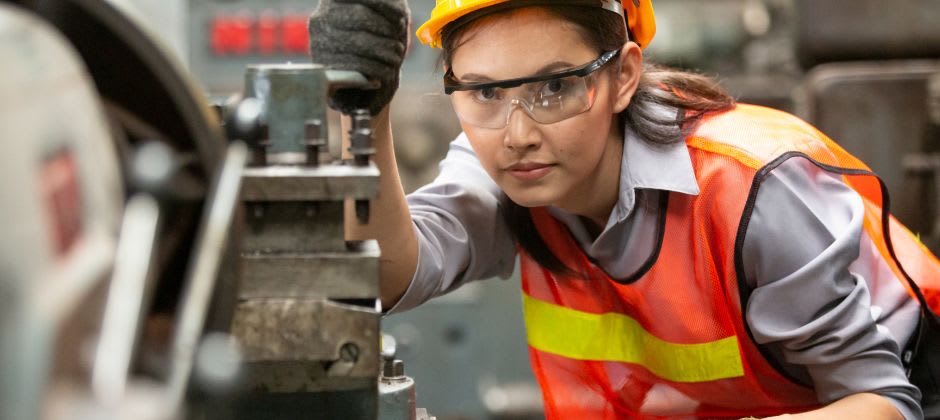What does a CNC machinist do?
CNC machinists use computer numerically controlled (CNC) machine tools to cut, drill, shape and finish products and components used in the engineering and manufacturing sectors. Many people take courses and apprenticeships in this area to get into this type of role, though some learn on the job. They work primarily with metals but also deal with wood, composite materials and plastics.
The tools they operate include lathes, cutters, milling machines, grinders, borers and machines that combine several of these functions. Products include parts for the automotive, power, marine and aerospace industries, and manufacturing and machine tools for the engineering sector.
Machinists program the CNC machine tool with data taken from technical drawings. Some machines display the section on a screen so that the process can be worked out visually.
Typical duties of a CNC machinist include:
- Planning the most efficient sequence of operations for the job
- Selecting the appropriate cutting tools for each cut
- Selecting the right cutting speeds
- Setting tolerances
- Positioning the section for each cut
- Converting instructions into a numerically-based program for the computer to follow
- checking that work meets quality and technical guidelines
- routine maintenance of machine tools.
The CNC machines are designed and set to produce large quantities of components to exactly the same specifications. Should small quantities of a product be required, hand-operated machine tools may be used.
What is the working environment like for CNC machinists?
CNC machinists work 42-44 hours per week, Monday to Friday. Overtime may be available. Shiftwork may include weekends, evenings and nights. Machinists work in factories and workshops, standing at the machine as it operates.
Although heavier materials can be positioned with hoists, some manual lifting of smaller products will be required. Protective overalls, boots, goggles and earguards are normally worn.
At the beginning of your career as a CNC machinist, you can expect to earn around £15,000 a year. After 5+ years of experience, the average salary increases to around £30,000 a year.
Browse our jobs and salary section for more information on the average salary and job prospects for CNC machinists in the UK.
What does it take to become a CNC machinist?
To be a CNC machinist you need:
- To understand engineering drawings and instructions
- To be able to visualise finished products
- An understanding of the properties of the materials you work with
- Good practical skills
- Good numeracy and computer literacy skills
- To be able to work precisely
- Good concentration levels
- To be able to work alone
- To be reasonably physically fit
Get the right qualification to begin your journey to becoming a CNC
Machinist!
Use the filters to search for the best learning option for you.

